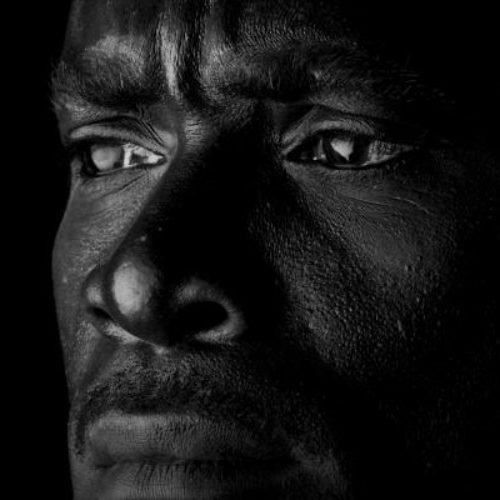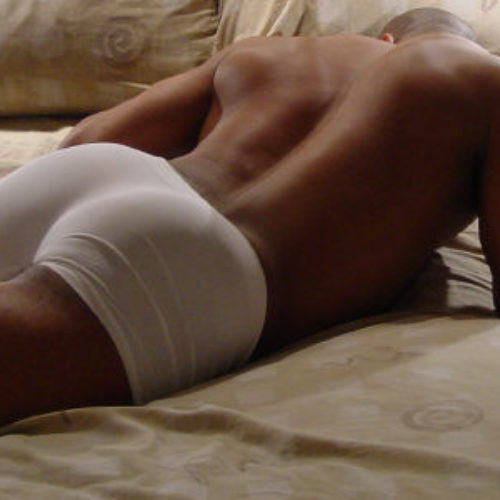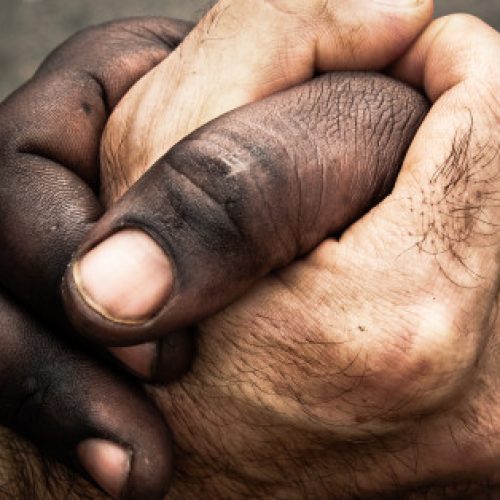The Piece About The Importance Of Visibility To LGBT Rights Advocacy In Nigeria
Written by Rashidi Williams and originally posted on whereloveisacrime.com
*
Sexualities expression is an integral part of the effective functioning of any individual. However, in certain parts of the world, this expression is shrouded in secrecy and fear. In Africa, more than 40 countries have draconian measures regarding same-sex sexual orientation. In this context, we explore the relationship of visibility to the emancipation of the LGBT community in Nigeria and its clamour against homophobia and contextualize this within the fundamental freedom of the right to expression, as guaranteed by the 1999 Nigerian Constitution. For the purposes of this article, visibility is defined as the degree to which an issue or a people have attracted attention.
Since 2000, LGBT people have started to organise for their political, social and economic space in Nigeria. This was at a time when no one could say, ‘Here goes a homosexual person.’ At this point in our history as a community, I remember vividly that you could count the people who expressed their sexuality openly. However, the tides were to change for the community when the legislature pushed the Same Sex Marriage Prohibition Bill on grounds of being embarrassed by international activists. This step by the government brought national attention to an issue that had hitherto been rarely discussed. As a result, the government gave us the first step on the visibility ladder. We have not looked back since then, going so far to challenge the government on discriminatory policies and to contribute to the discourse on the 1999 Constitutional Amendment in 2009.
As citizens of Nigeria, we cannot achieve changes in current legislation, from the current discriminatory position to one that enables people to seek redress of injustice on grounds of their sexual orientation and or gender identity, by keeping a low profile. Discriminatory laws and policies have changed for the better in jurisdictions where the tempo for visibility of the issue and the people affected have been sustained. From apartheid in South Africa to racial discrimination in the United States, visibility for the issues close to the hearts of the people kept glowing until authorities were compelled to change the laws or pass new ones.
Regarding LGBT advocacy, the laws will not be expunged if we sit comfortably in our corners, without taking steps to show the nation how discriminatory laws on the grounds of sexual orientation and gender identity connect with other spheres of national life. The lack of visibility is what prompted the former Minister of Foreign Affairs, Ojo Madueke, to tell the world that there were no gay persons in Nigeria in a display of intellectual naivety for someone who occupied a ministerial position. For Nigerians in general, we must become more visible if we want the law to change; first as individuals, secondly as a community and thirdly on national issues. After all, with the call for the respect of our constitutional rights and fundamental freedoms, we proved to Ojo Madueke and the evangelicals that we do exist.
A desire for legislative change has to go alongside participation within the political space of our nation. Thus, our visibility as a community is our political power, one to be wielded for the benefit of human rights. Using examples from developed nations, LGBT visibility has forced the governments of countries such as the US, UK and Canada to make decisive sexual orientation and gender identity inclusive policies. Other factors can be called into play but the power of visibility cannot be underestimated. Back to Nigeria, the imperativeness of LGBT visibility is a matter of political power for our community. If we keep up the tempo of visibility and connect our issues to broader national issues, we will not be far from being a political force in the country. Consider the 1950s statistics of Alfred Kinsey’s research on sexualities: 1% of 170million is not a negligible number. What political party does not want the vote of this community? Our visibility is our political power. If some 1.7million people had poured into the streets chanting against the draconian Same Sex Marriage Prohibition Act, would the government not have considered a systemic review of obnoxious laws? Visibility is our political power and we must wield it if we earnestly yearn for legislative change in the nearest future.
Consider the labels the media fixes on individuals and the LGBT community. For example, there is a stark distinction between pedophilia and homosexuality, as there is between pedophilia and heterosexuality. But often, the media interchanges pedophiles as homosexuals and homosexuals as pedophiles. Visibility can conquer this stigmatizing perspective. Our visibility as a community is strong evidence for our struggle against fundamentalism, oppression, impunities and stigmatization. It is the lifeline of our advocacy. The lower the visibility, the lower the attention we bring to our issues. When we do not sit by idly, we give the people something to talk about and engage in the conversation to change minds.
In closing, it is essential to distinguish between “coming out of the closet” and visibility. Coming out is an individual agenda. Visibility embodies the notion of collectivism. The potency in visibility to effect changes in the lives of LGBT people, especially on issues that pertains to legislation, is sacrosanct. Visibility must be encouraged across the board starting from civil society gatekeepers of the community to individuals who identify as LGBT. Changing the status quo means being visible. Conquering stigma and discrimination means taking the visibility bull by its horns. The public needs to see what it means to be LGBT. In being visible as individuals and as a community, we challenge heteronormativity and normalize our sexual identities and choices. This is how we will trash norms that disenfranchise the LGBT community in particular, and every other minority that feels and bear the weight of discrimination and marginalization in general.
Mr. Williams Rashidi is the organisational director of Queer Alliance Nigeria. Trained as a Science Laboratory Technologist at Accra Polytechnic, Williams left the field of science laboratory to pursue his passion for change regarding discriminatory laws and policies on grounds of sexual orientation and gender identity. His advocacy has seen him challenge and address government on the constitutionality of the Same Sex Marriage Prohibition Act since 2008.
Williams has participated in numerous professional training on leadership, project management and human rights. Williams’s lifelong objective is to work within the field of public policies especially as it affects human rights of marginalized and vulnerable populations
About author
You might also like
WHEN THE LAW IS STILL THERE
“After the law was passed…” Recently, we read THIS STORY about one of us who almost got into trouble with a policeman pretending to be gay. What struck me: the story
SHIT HAPPENS
Shit happens. Literally. Sometimes, it really does. I should know; I’m the one with the testimony. The love interest in this story is named Segun, an old friend with benefits
I Would Call Us Champions
I wouldn’t call us crazy or mad. Are we echoes? Are we heroes? Sinking into deep and hellish pits, hitting devasting lows. We carry this cross. You don’t see our










9 Comments
pete
October 24, 08:06In closing, it is essential to distinguish between “coming out of the closet” and visibility. Coming out is an individual agenda. Visibility embodies the notion of collectivism.
Pink Panther
October 24, 08:31pete, what point are you trying to make by highlighting that specific part?
pete
October 24, 08:47PP, those lines are everything. Whether I come out of the closet to selected or everyone is personal but I’m not going to shy away from discussing LGBT issues as most negative comments are as a result of ignorance. I wanted to write this beneath it but the traffic between Obigbo & Eleme is messing me up.
Dennis Macaulay
October 24, 09:12The difference he highlighted between visibility and coming out was the high point of this article.
I loved this! Thankyou!
Chizzie
October 24, 09:47So I had to have a dictionary on the side while I was reading this, and I learnt a word or two, but talk about being too formal! Felt like I was reading Margaret Thatcher’s speech addressing the UN or something.
He differentiated visibility from coming out but he still didn’t define what it entails to be visible. Am I being visible by walking around the street with a placard that reads ” End homophobia” or by being pro- gay in a homophobic argument? I feel he should have stated in plain English how one can be visible without coming out.
And this might be crying over spilled milk but I think we were all better off when Nigerians were convinced that we didn’t exist, this was circa early 2000s or so, before a certain somebody blew our cover. In retrospect I think , Ojo Madueke was trying to do us a favor by deluding Nigerians to believe that we didnt exist. The advantage of oblivion is that one can get away with virtually anything. But anyways I guess we must face the bull by its horns now.
Uziel
October 24, 10:27I’d rather be disliked than not noticed at all. It’s hard enough that we have to handle the bad deal they give us, we have to live as ghosts. Visibility is being seen. You don’t have to be out of the closet for us to let them know that there are gay people around, and that they’re human.
Max
October 24, 11:22@Chizzie, “Comfort” is the enemy of progress.
No significant change in history has ever happened without some form or level of discomfort.
Khaleesi
October 24, 14:29Tall order, but one which must nevertheless be carried out, if the lives of LGBT Nigerians must improve, then we must slowly and steadily crack open the closet doors and let “them” slowly catch a glimpse of who we truly are and not who they’ve been made to think that we are …
Marc Francis of Chelsea
October 24, 20:41The issue with being visible in Nigeria is being labeled as gay and hence being attacked. They’re almost interchangeable in our deeply homophobic region. Consider Ojo Madueke’s educational background and then consider that even with that much education, he can still say publicly that there are no gay people in Nigeria. That is ignorance at its peak quite alright, but then imagine how many educated and uneducated people share this view. In saying this, I don’t think he believes there are no gay people, but it’s rather a dare to gay people. Come and be wiped out. Anyone whether gay or straight protesting for gay rights at any embassy is plastered on Linda Ikeji as one of the homosexuals protesting, driving people to only do so from the safety of their keyboards.
I think what we need in Nigeria is more straight people to fight for us. Once a gay person, regardless of how educated he/she, comes out to speak, Nigerians immediately cast them aside as one of the crazy gays. Unfortunately I don’t see this happening anytime soon.